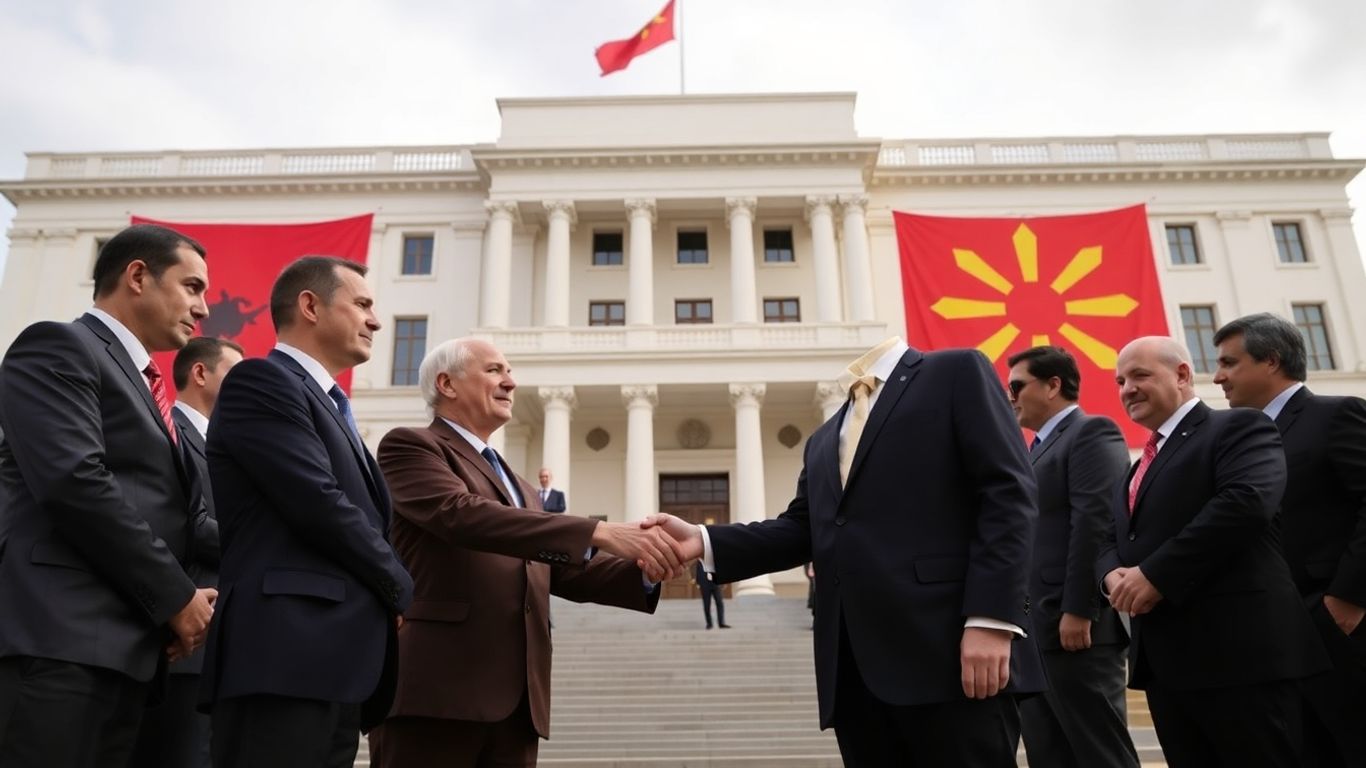Albanian political parties are playing pivotal roles in North Macedonia, as fierce competition and shifting alliances within the ethnic Albanian bloc impact the stability and direction of the government. As local elections approach, the rivalry between parties like VLEN, DUI, and the Alliance for Albanians promises to redefine the political landscape.
Key Takeaways
- Ethnic Albanians constitute around 25% of North Macedonia’s population and are key to government stability.
- The VLEN party currently leads the coalition government, while the Democratic Union for Integration (DUI) seeks a return to power.
- Internal fractures among Albanian parties, most recently with the Alliance for Albanians leaving the government, highlight ongoing political tension.
The Importance of the Albanian Bloc
In North Macedonia, ethnic Albanian parties have long held the balance of power. Government coalitions are often dependent on their support, given the sizable Albanian minority. This influence was on display during recent general elections, when VLEN, a new political force, managed to edge DUI out of the government after the latter’s near two-decade rule. VLEN’s ascent marked a significant shift, signaling a readiness for change among Albanian voters but also setting the stage for intense competition within the community.
Turmoil and Realignment Within Parties
The past year has been marked by turbulence within the Albanian political camp. The Alliance for Albanians, under Arben Taravari, recently exited the governing coalition, citing unfulfilled promises and dissatisfaction with their role. While their departure did not topple the government, it prompted a cabinet reshuffle and revealed deep divisions.
Earlier, members of the VLEN alliance sought to unify into a single party and present joint candidates in the upcoming local elections. However, Taravari’s Alliance for Albanians chose instead to keep its distance, voicing concerns over representation and unity within the cabinet. This move has led to accusations of double-dealing and further complicated an already fraught relationship among Albanian parties.
What’s At Stake In The Upcoming Elections
With local elections approaching, the struggle between VLEN and DUI is seen as more than just a vote—it’s a referendum on who truly represents the Albanian voice in North Macedonia. If VLEN maintains or strengthens its position, it could establish itself as the new standard-bearer for Albanian interests. On the other hand, strong showings by DUI could embolden claims that the current government is failing to represent ethnic Albanians.
The outcome will not only influence government stability but also North Macedonia’s broader ethnic relations and prospects for continued progress in political reform.
Looking Ahead: Calls For Unity
There are increasing calls from within Albania and the diaspora for greater unity among North Macedonia’s Albanian parties. Observers want to see less infighting and more collaboration to better serve their constituents’ interests. Whether these appeals translate into practical political alliances or simply inspire a new era of competition remains to be seen.






